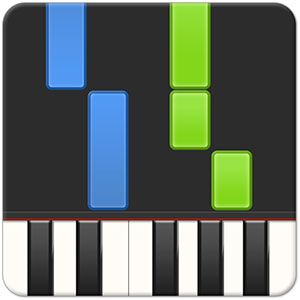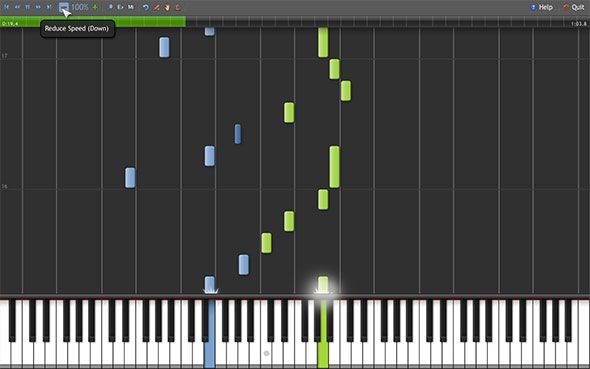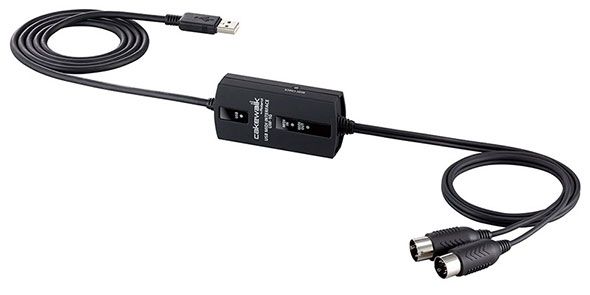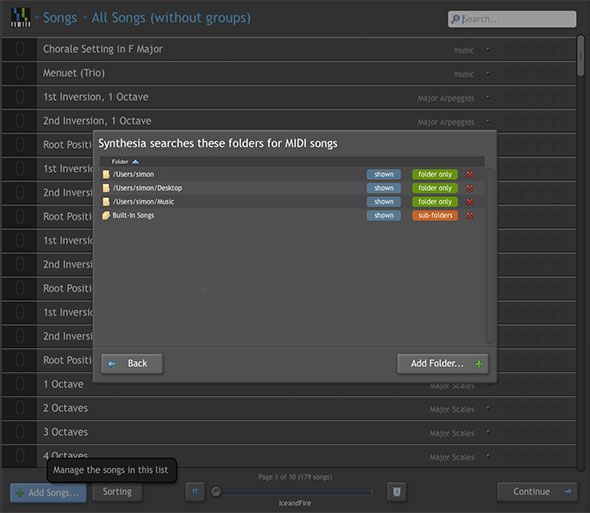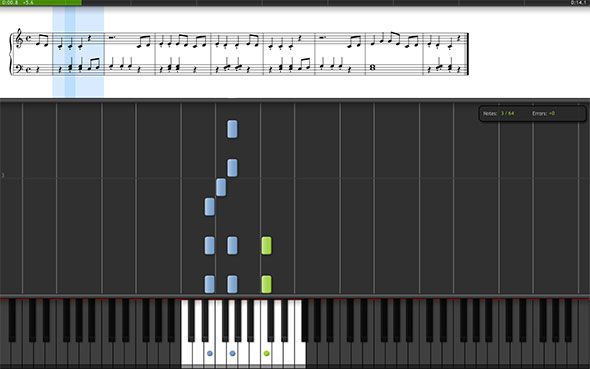There are some people who claim that playing Guitar Hero doesn't teach you how to play guitar. I hate to break it to you, but those people have it by the right end.
However, that doesn't mean we should dismiss computer-aided learning of musical instruments. We previously published articles on the same note, where I detailed 3 Useful And Free iPad Apps For Starting Musicians, and Ryan Dube talked about the Top 5 Sites For Learning Piano Online.
Computer-aided learning, although not always a substitute for a music teacher, gives you the feedback you wouldn't get from a plain old piano book. Moreover, gamification can it easier to practice piano, and a lot more fun by introducing elements usually found in computer games. Computer games like guitar hero.
Synthesia (Mac) (Windows)
There are many ways to describe Synthesia, which is a free application available for Mac OS X and Windows computers. One way to describe it would be to draw the comparison with Guitar Hero—that is, a game—albeit with a lot more keys. Synthesia can also be seen as more serious (but still fun) application to practice your keyboard or piano skills. On a basic level, it helps you master the scales, and guides you through the finger exercises you'd usually find in an introductory piano course. On a more advanced level, it'll help you practice complex musical scores.
So how does it work? Like Guitar Hero, notes fall down from the top of your screen. Blue and green notes are meant to be played with your left and right hand, respectively. When the note hits the bottom of your screen, you hit the corresponding key on your electrical piano. Using the player, you can slow down or speed up the score to correspond to your playing level.
Keeping track of your hits and misses during the song, Synthesia awards you with a score that shows you how well you performed. Enter the gamificaiton. You can set personal goals and strive to meet them, challenge your friends to beat your scores on the online scoreboard, or compete with the scores of more practiced players.
What You'll Need
Obviously, Synthesia would be a bit hard to play on your computer keyboard (or worse, using the mouse). Instead, you're supposed to get out your electrical piano, keyboard, or synthesizer and connect it to your computer.
Some of the newer keyboards might have a USB interface, but really all you need is a MIDI interface (those ginormous plugs present on most keyboards) and a USB-MIDI adapter, which can be purchased for a few bucks online, or found in musical instruments store. Follow the manual of your keyboard and adapter in connecting it to your computer, and test the connection in Synthesia's preferences.
Import Additional Songs
Some practice songs and a lot of classical music is already included when you download Synthesia, but you're not limited to that, or even to what Synthesia provides. In fact, you can use Synthesia to play and practice any MIDI song. A lot of websites that provide musical scores also let you download a MIDI file. Barring that, just search for it on Google, and the chances are good you'll find something.
When you're in the song browser in Synthesia, just press the blue button in the lower left corner of your screen to add additional songs to Synthesia. In the ensuing pop-over (seen in the screenshot above), you can tell Synthesia what folders to watch for additional songs.
Premium Learning Pack Features ($ 35)
Although Synthesia is free to use as is, you can unlock a number of additional features by purchasing the USD 35 Synthesia Learning Pack. Among other things, this sets you up with Melody Practice, finger number hints, sheet music display, note and key labels, and section looping.
Melody practice stops the score until you hit the correct note, and the aptly named sheet music display allows you to read the sheet music in addition to observing the falling notes, as shown in the screenshot above. Of course, all of this is completely optional, and Synthesia is worth the try either way.
What do you think of Synthesia's gamification of piano scores? A great way to promote practice, or distracting the serious musician from more formal tools? Let us know your thoughts in the comments section below the article!

